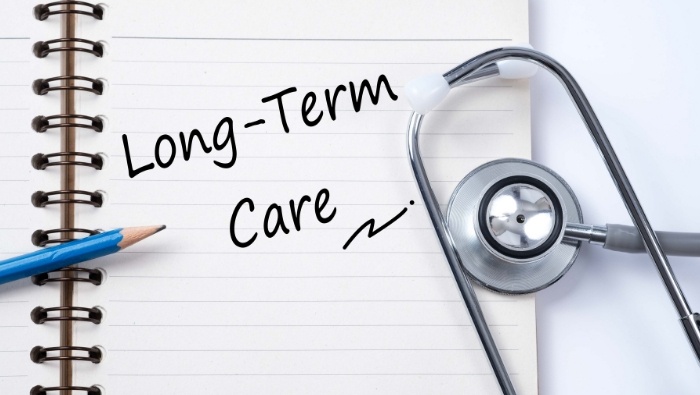Things To Consider About Your Long Term Care
by Rick Kahler

About 70% of us will need long term care eventually. Make sure you consider these things when making decisions regarding your long term care.
When most of us hear “long-term health care plan,” we think of insurance. While a long-term care insurance policy may be part of your health care planning, it isn’t a plan. Even those who don’t need such insurance need a long-term health care plan.
A few years back, I heard a presentation by Carolyn McClanahan, MD, CFP. She said about 70% of Americans will need some type of long-term care. Your odds of needing it increase as you get older and are also higher if you are female, have a family history of chronic health conditions, have a poor diet, don’t exercise, or live alone.
Two major issues to consider in creating your own long-term care plan are where you will live and how you will pay for the care you are likely to need.
Most seniors want to live in their own homes “until their toenails turn blue,” as Dr. McClanahan puts it. No matter how appealing this is, it may not be realistic. Here are some important items she says to consider that can make your home old-age friendly:
- Close proximity and access to needed services like grocery stores, restaurants, and medical facilities
- Available interaction with others
- A plan for home maintenance
- Accessibility for wheelchairs and walkers
- Minimal stairs, level surfaces, and the ability to accommodate ramps inside and out
- Non-skid floors, baths, and showers
- Grab bars and easy-to-reach utilities (See Bathroom Remodeling Tips for Aging In Place.)
- Cameras at floor levels (the least intrusive) to monitor your activity
- Whether the home can be dementia proofed
- Whether in-home medical and support services are available, you are willing to use them, and you can afford them
You deserve a comfortable retirement.
Even with a goal of staying in your home, your plan should specify how to determine if it’s time to move into a long-term care facility. Perhaps it would be when friends or family feel it’s a safety issue, you can no longer perform certain functions, or transportation becomes an issue.
The second large concern, of course, is how to pay for long-term health care. This is where LTC insurance can come in handy, but it is expensive and often doesn’t cover all the costs. Paid care includes nursing facilities, which are the most expensive alternatives, followed by assisted living facilities, independent living apartments, adult day care, and in-home care. (See Do I Need Long Term Care Insurance?)
However, most long-term health care is unpaid. A 2020 AARP report revealed that 63% of the 53 million U.S. adult caregivers were providing care because of “long-term care conditions.” Census data shows that the average caregiver spends 24 hours a week providing care, with 25% of them spending over 40 hours a week and will serve in this role for an average of four years. The average cost to caregivers in lost wages, benefits, and out-of-pocket expenses is $300,000 to $700,000.
The more retirement savings you have, the more you can avoid placing this burden on your family members. If you are approaching retirement without adequate income, you may want to consider working longer and/or reducing spending now in order to provide for your long-term needs.
Obviously, we are a nation that isn’t planning well for old age. Many of us feel that by not talking about long-term care planning, it somehow won’t become a reality. The ultimate reality is that by not planning, most elders and their caregivers will have few to no options when they need care. Creating your own long-term health care plan before you need it can increase your options and help you live out your life with more comfort and dignity.
Reviewed September 2023
About the Author
Rick Kahler, MSFP, ChFC, CFP, is a fee-only financial planner and author. Find more information at KahlerFinancial.com. Contact him at Rick@KahlerFinancial.com.
Sign me up for a comfortable retirement!
Sign me up for a comfortable retirement!
Popular Articles
- Comparing Retirement Housing Options
- How We Retired With Almost No Savings
- How Retirees Can Live on a Tight Budget
- 9 Things You Need to Do Before You Retire
- What You Need to Know About Long Term Care Insurance Before You Retire
- You Didn’t Save Enough for Retirement and You’re 55+
- Could Debt Derail Your Retirement? A Checklist
- Your Emergency Fund In Retirement: A Comprehensive Guide
- Managing Your 401k In Your 50s

